
2024 ACMT Annual Scientific Meeting - On-Demand
- Registration Closed
#ACMT2024 On-Demand
Couldn't join us in Washington, DC? No problem! The American College of Medical Toxicology (ACMT) presents 2024 ACMT Annual Scientific Meeting On-Demand!
Join your peers in the field of medical toxicology and catch up on a comprehensive suite of lectures and panels on the latest advancements and research in medical toxicology. In alignment with ACMT's commitment to providing top-tier and innovative educational opportunities, #ACMT2024 features recordings of collaborative sessions with the American Academy of Clinical Toxicology (AACT), the American Society of Addiction Medicine (ASAM), and six of our international medical toxicology partner organizations.
This on-demand module captures the essence of our live, in-person meeting held in Washington, DC from April 12-14, 2024. The content has been curated into 21 asynchronous lectures, including our Donovan Lecture keynote session with head of NIDA, Dr. Nora Volkow, on addressing the Challenges of the Opioid Epidemic. Other critical topics include Radiation Exposure and Contamination for Toxicologists, PFAS (Polyfluoroalkyl Substances) Exposures Testing and Counseling, the implications of Over-The-Counter Naloxone & Nalmefene, and Manganese and Water Quality Standards.
Register now to gain 90 days of access to this invaluable on-demand material and earn 16.00 Continuing Education credits. Don’t miss this opportunity to enhance your expertise and stay at the forefront of medical toxicology!
Target Audience
#ACMT2024 On-Demand is tailored for medical toxicologists and healthcare professionals interested in the field of medical toxicology.
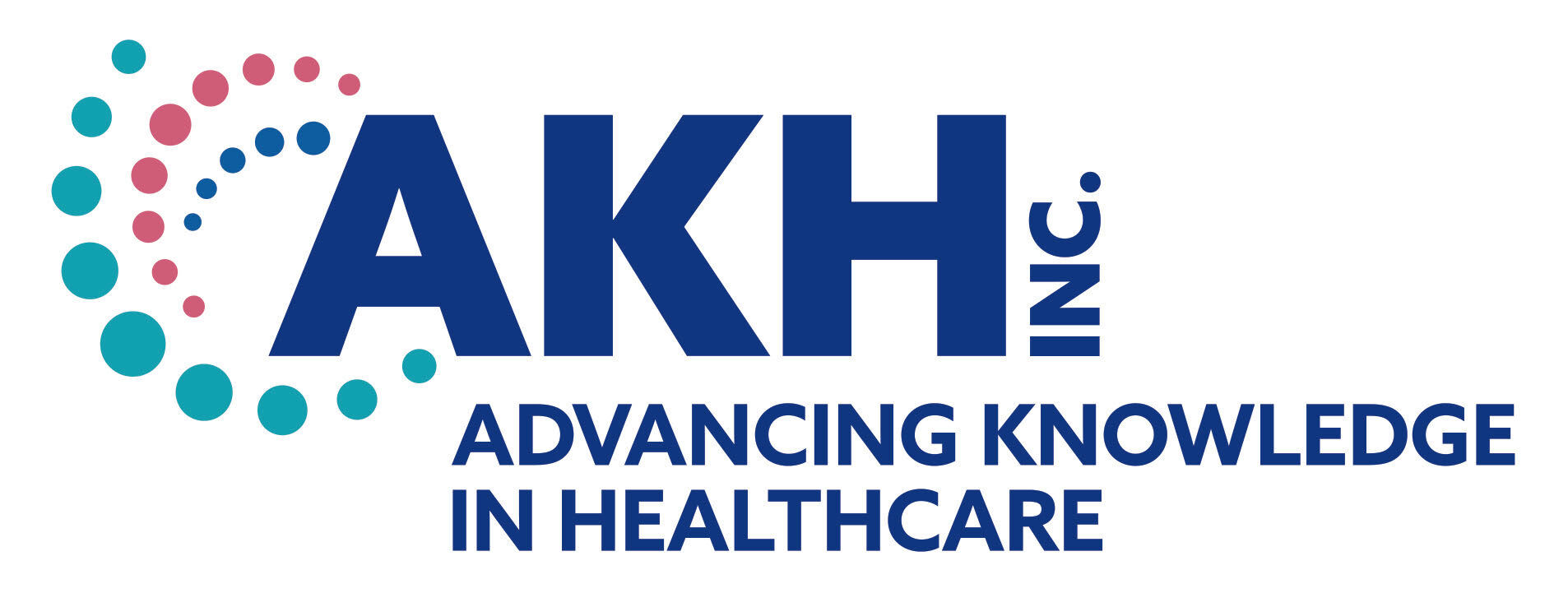
Continuing Education
Enduring Continuing Education credits for Physicians, Pharmacists, and Nurses for is provided by AKH Inc., Advancing Knowledge in Healthcare. It is expected that learners will receive up to 16.00 credits for learning and change.
For more information, click here.
Learning Objectives
After completing this course, you should be able to:
1) Enhance clinical decision-making in the field of Medical Toxicology.
2) Summarize knowledge of emerging toxins and novel therapies.
3) Organize multidisciplinary collaboration in the management of complex medical toxicology cases.
Questions?
Please write to ACMT at events@acmt.net
Other #ACMT2024 Content
Interested in Substance Use Disorder in Youth and it's unique challenges? Check out our On-Demand ACMT Symposium through the link below!
Syllabus
Total Activity Length: approximately 16.00 hours (873 minutes)
Donovan Lectureship - Groundbreaking Research from NIDA Addressing the Challenges of the Opioid Epidemic | 52 min
Nora D. Volkow, MD, Director, National Institute on Drug Abuse (NIDA), National Institutes of Health (NIH), Washington, DC
Dr. Nora D. Volkow, the Director of the National Institute on Drug Abuse (NIDA), discusses the challenges we face with the opioid epidemic. This lectureship was supported by the Medical Toxicology Foundation through the Ward and Ryan Donovan Memorial Fund. For more info, please visit: www.acmt.net/donovan-lectureship.
Achieving Health Equity in the Field of Substance Use: A Public Health Approach | 20 min
Carla Foster, MPH, Epidemiologist and Principal Investigator, New York City Department of Health and Mental Hygiene, New York, NY
Carla Foster, MPH, discusses the inequities in substance use within public health and the history, goals, and steps the field can take towards creating a more equitable approach in medicine.
Toxicological Considerations of the East Palestine, Ohio Train Derailment | 43 min
Panel
Joseph Cocciardi, PhD, MS, FAIHA, CIH, CSP, REHS/RS, Founding Principal, Cocciardi and Associates, Inc.; Senior Health & Safety Professional, Pennoni, Mechanicsburg, PA
Michael J. Kosnett, MD, MPH, FACMT, Associate Clinical Professor, Department of Medicine, University of Colorado School of Medicine, Denver, CO
Charles McKay, MD, FACMT, Associate Medical Director, Connecticut Poison Control Center, University of Connecticut School of Medicine, Marlborough, CT Anthony Pizon, MD, FACMT, Chief of Medical Toxicology Division, Professor of Emergency Medicine, University of Pittsburgh, Pittsburgh, PA
Joshua Shulman, MD, Medical Director, Pittsburgh Poison Center; Assistant Professor, University of Pittsburgh, Pittsburgh, PA
Moderator
Emily Kiernan, DO, FACEP, Assistant Professor, Emory University, Atlanta, GA
This panel discusses the train derailment incident in East Palestine, OH and the importance of medical toxicology in emergency management.
MedTox Case Panel: Case-Based Conundrums | 86 min
The panel discusses a variety of cases. Dr. Damilola Idowu discusses a case involving chronic methotrexate toxicity in end stage renal failure. Dr. Colleen Cowdery presents a case on the ingestion of sodium nitrate associated with cardiac arrest and organ transplant. Dr. Emma Cassidy closes the panel off with a case covering an aspirin overdose incident in Alaska.
AACT Session | Don’t Have a Meltdown: What Toxicologists Need to Know About Radiation Exposure and Contamination | 52 min
Emily Kiernan, DO, FACEP, Assistant Professor, Emory University, Atlanta, GA
Dr. Emily Kiernan, an Assistant Professor at Emory University presents an introduction into radiation basics and demonstrates the importance of understanding radiological units, exposure levels, and patient care for medical toxicologists.
ASAM Session | NIDA Research & ED Experience with XR Injectable Buprenorphine | 62 min
Panel
Kristen Huntley, PhD, Associate Director, Addiction Medicine Team Leader, Center for the Clinical Trials Network, National Institute on Drug Abuse, NIH, DHHS, Washington, DC
Gail D'Onofrio, MD, MS, Albert E. Kent Professor of Emergency Medicine, Professor of Epidemiology (Chronic Diseases) and Professor of Medicine Core Addiction, Yale School of Medicine, New Haven, CT
Joseph Carpenter, MD, Assistant Professor, Department of Emergency Medicine, Emory University School of Medicine, Atlanta, GA
Jon Cole, MD, FACMT, Emergency Physician and Medical Toxicologist, Hennepin County Medical Center; Medical Director, Minnesota Poison Control System, Minneapolis, M
Moderator
Timothy Wiegand, MD, FACMT, FAACT, DFASAM, Associate Professor of Emergency Medicine and the Director of Toxicology and the Toxicology/Addiction Consult Service, Strong Memorial Hospital, University of Rochester Medical Center, Rochester, NY
This panel discusses the research into extended release injectable buprenorphine use in the ED.
ACMT Career Achievement Award - Medical Toxicology at the FDA: A Structured Public Health Career | 42 min
Keith Burkhart, MD, Senior Advisor for Medical Toxicology, US Department of Health and Human Services, Silver Spring, Maryland
Dr. Keith Burkhart, the Senior Advisor for Medical Toxicology, US Department of Health and Human Services in Silver Spring, Maryland receives the 2024 ACMT Career Achievement Award. Dr. Burkhart delivers a presentation covering his career in medical toxicology within the U.S. Food and Drug Administration as well as current projects in the field.
Original Research
Platform Session 1 | 48 min
The platform session features talks from Dr. Jason J. Rose from the University of Maryland School of Medicine; Dr. James Whitledge from the University of Vermont Medical Center; and Dr. Joshua David King from the Maryland Poison Control & University of Maryland School of Medicine. Dr. Rose discusses the development of carbon monoxide therapeutic agents. Dr. Whitledge shares findings from a 10-year project utilizing a Glycerol Dehydrogenase assay for Ethylene Glycol exposure. Dr. King examines the complications associated with the use of hemodialysis in the treatment of salicylate poisoning.
Platform Session 2 | 62 min
The platform session features talks from Kai Smollin, Dr. Michael Chary, Timlin Glaser, and Dr. Spencer Greene. Kai Smollin presents a look into how Artificial Intelligence will affect the field of Medical Toxicology. Dr. Chary introduces Jarvis, a software tool that can assist with identifying substances and doses from online commentary. Timlin Glaser discusses geographic data from the North American Snake Bite Registry to analyze the relationship between Alpha-Gal Syndrome and acute hypersensitivity reactions. Dr. Greene compares two antivenoms’ efficacy, safety, and incidences of acute adverse reactions for eastern copperhead envenomations.
Lightning Oral Session | 56 min
During the Lightning Oral Session, seven medical professionals present short-format lectures on various subjects. Dr. Ophir Lavon gives a presentation on how to recognize and appraise the advantages of professional toxicological consultation in acute acetaminophen poisoning. Dr. Mayank Gupta discusses the use of octreotide by reviewing the indications for use and describing clinical outcomes associated with different routes of octreotide administration after sulfonylurea exposure. Dr. Colleen Cowdery reviews the effectiveness of bedside mixing of calcium-containing gels in emergency departments. Dr. Charlotte E. Goldfine covers the barriers with medical treatment for alcohol use disorder (AUD) by presenting the perceptions individuals have towards a digital pill system and understanding the challenges individuals have with medical adherence for AUD. Dr. Mana Sheykhsoltan continues the discussion of individuals’ behaviors with substance abuse by identifying differences in characteristics between individuals who presented for drug overdose and those who presented for an unrelated complaint but screened positive for drug use. Dr. Jessica Krueger presents research related to envenomation by identifying potential adverse outcomes and new protocol for assessing adverse outcomes in rattlesnake envenomated patients. Dr. Austin Gay discusses the utilization of Advanced Virtual Support for OpeRational Forces (ADVISOR) by evaluating it’s effectiveness for toxicology support in austere environments.
Environmental & Occupational Medicine Track
Harmful Algal Blooms (HABs): What Poison Centers and Medical Toxicologists Should Know | 28 min
Panel
Brett E. Johnson, MD, Emergency Medicine Physician, UMass Memorial Medical Center, Worcester, MA
Mindy Richlen, PhD, Research Specialist, Biology, Woods Hole Oceanographic Institution, Woods Hole, MA
Michael J. Twiner, MD, PhD, Assistant Professor, Department of Emergency Medicine, Wayne State University, Detroit, M
Moderator
Jeffrey Lai, MD, Assistant Professor of Emergency Medicine, UMass Chan Medical School, Worcester, MA
A panel including Dr. Jeffrey Lai, Dr. Brett Johnson, Dr. Mindy Richlen, and Dr. Michael Twiner discusses Harmful Algal Blooms (HAB). The cover the topics of identifying the prominent human poisoning syndromes associated with algal toxins, the mechanisms by which humans are exposed, and the impacts HABs have on human, animal, and environmental health.
Mad About Manganese: Medical Toxicologists and Water Quality Standards | 29 min
Richard Hamilton, MD, MBA, FACMT, FACEP, FAAEM, Professor and Chair of Emergency Medicine, Drexel University College of Medicine, Philadelphia, PA
Dr. Richard Hamilton presents the subject of medical toxicology and water quality standards by discussing how to plan a water quality analysis and how to differentiate between the various points of departure and their meaning.
Do You Really Know IARC? Why IARC Determinations Aren’t Clear Cut, and When They Result in Controversy | 29 min
John Downs, MD, MPH, Associate Professor and Associate Program Director, Occupational & Environmental Medicine Residency, Uniformed Services University, Bethesda, MD
Kevin F. Maskell, Jr., MD, Assistant Professor of Military and Emergency Medicine, Brooke Army Medical Center, Jbsa Ft Sam Houston, TX
Dr. John Downs and Dr. Kevin Maskell discuss the International Agency for Research on Cancer (IARC) and their determinations for cancer-causing agents. During this presentation, they cover the difference between cancer hazard and cancer risk and how it is incorporated into IARC determinations as well as the data used to make a Group 1 determination.
Testing and Counseling on Polyfluoroalkyl Substances (PFAS) exposure in the Medical Toxicology Clinic | 56 min
Panel
Nicholas Erick Nacca, MD, Assistant Professor of Emergency Medicine, University of Rochester Medical Center, Rochester, NY
John Downs, MD, MPH, Associate Professor and Associate Program Director, Occupational & Environmental Medicine Residency, Uniformed Services University, Bethesda, MD
Elizabeth Boyle, MPH, CIH, Senior Program Officer, Board on Population Health and Public Health Practice, National Academies of Sciences, Engineering, and Medicine, Washington, DC
Brian Linde, MD, MPH, Associate Program Director, Yale Occupational and Environmental Medicine Program (YOEMP); Chief of Occupational Health Services, VA Connecticut Healthcare System (VACHS), New Haven, CT
Moderator
Michael Holland, MD, FACMT, FAACT, FEACCT, FACOEM, FACEP, SUNY Upstate Medical University, Syracuse, NY
A panel including Dr. Michael Holland, Dr. Nicholas Nacca, Dr. John Downs, Dr. Elizabeth Boyle, and Dr. Brian Linde discusses an approach to counseling patients regarding clinical testing for PFAS in the Medical Toxicology Clinic.
Addiction Toxicology Track
Medication for Opioid Use Disorder Trajectory Phenotypes | 31 min
Albert Burgess-Hull, PhD, Head Data Scientist, SUDx/MATClinics, University of Maryland, Baltimore, MD
Dr. Albert Burgess-Hull discusses how urine toxicology tests can be used to develop a real-time prognostic model to forecast the treatment response of a new patient initiating medication for opioid use disorder treatment.
The Public Health Impact of Over-The-Counter Naloxone & Nalmefene | 23 min
Michael Toce, MD, MS, FACMT, Assistant Professor of Pediatrics and Emergency Medicine, Harvard Medical School/Boston Children's Hospital, Boston, MA
Dr. Michael Toce makes a presentation on exploring the potential public health benefit of making naloxone over the counter by evaluating the impact of naloxone access laws on naloxone distribution and opioid-related mortality. He further discusses the differences of the pharmacokinetic properties of naloxone and nalmefene and postulate how these properties may affect patients with opioid dependence.
Research Track
Researchers, Do You Even R? Getting Started with Managing and Visualizing Toxicology Data in Research | 30 min
Hannah Spungen, MD, MPH, Toxicology Fellow, Banner University Medical Center-Phoenix, Phoenix, AZ
Dr. Hannah Spungen dives into the utilization of the toxicology platform R by presenting how to use R for toxicology research and how to use R for toxicology research.
Translational Research from Laboratory Bench to Clinical Practice: Digoxin Poisoning | 26 min
Betty Shuk Han Chan, MBBS, PhD, A/Prof, Prince of Wales Hospital, Sydney, Australia
Dr. Betty Shuk Han Chan gives a presentation on digoxin poisoning discussing how to identify barriers to translational research and the core measures to study.
Anatomy of Authorship | 16 min
Mark Mycyk, MD, Editor in Chief; Research Chair, Journal of Med Tox; Cook County Health, Chicago, IL
Dr. Mark Mycyk discusses the fundamentals of authorship and accountability for research papers.
International Session
Representatives from MENATOX, APAMT, IST, RETOMEX, and EAPCCT deliver talks on relevant toxicological issues from around the world (90 min).
Dr. Hassan Al Balushi reviews a chlorine gas incident and the lessons learned in medical response. Dr. Geoffrey Isbister compares snake bite envenomation research between Australia and Asia. Dr. Ophir Lavon discusses the importance of antidote stockpiling and a case study regarding the Leiurus Hebraeus Scorpion antivenom. Dr. Jorge Guillermo Perez Tuñon discusses envenomations in Mexico and the medical advances and challenges they face. Dr. Mark Lawrence Zammit discusses the importance of Poison Centres also in relation to drug toxicities from pharmaceutical production processes.
Open Mic Competition (Optional - No CE included)
The competition features six short talks on a variety of topics by Medical Toxicology fellows:
- “A Call to Medicinal Lichenology” presented by Axel Adams
- “My Case for Why the Simpsons is the Toxiest Show on TV” presented by Alexia Armenta, MD
- “3 Act Model: Escape the Matrix” presented by Amar Chakraborty, BHSc, MD, FRCPC
- “A Haunting on H Street” presented by John DelBianco
- “Big Pharma Expo 2024” presented by Matthew Dernbach
- “LSD: Bicycles, Receptor Lids, and an Explanation for its Extraordinary Potency” presented by Paul Ehlers, MD, MS
- “All Too Pyruvate” presented by Kira Galeano, MD
- “Potions 101” presented by Christianne Jafari
- “The Motherisk Scandal” presented by Jess Kent Rice, MD, MSc
- “Frontiers in Medical Toxicology: Understanding and Applying Artificial Intelligence” presented by Michael Khoury, DO, MHSA
- "Phthalates in our Hospitals: Life in Plastic May not be Fantastic" presented by Cyrus Kuschner, MD
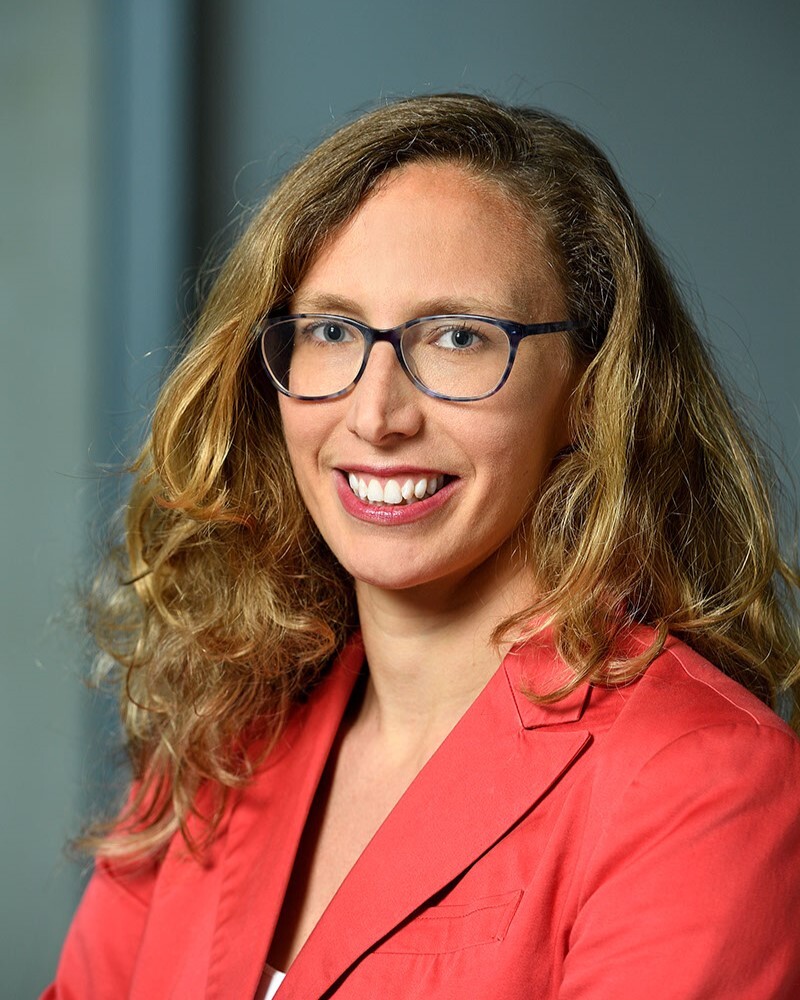
Elizabeth Boyle, MPH, CIH
Senior Program Officer, Board on Population Health and Public Health Practice
National Academies of Sciences, Engineering, and Medicine
Elizabeth Barksdale Boyle is a Senior Program Officer in the Health and Medicine Division’s Board on Population Health and Public Health Practice after serving for several years as a Program Officer with the Board on Environmental Studies and Toxicology. Formerly, she was an Environmental Health scientist at Westat, where she supported the Environmental Protection Agency, the National Institute of Child Health and Development, and the National Cancer Institute. Before her tenure at Westat, Ms. Boyle was a Student Epidemiologist at the Minnesota Department of Health and an Industrial Hygienist at a consulting firm in Cincinnati. She is a Fellow of the Bloomberg American Health Initiative at the Johns Hopkins Bloomberg School of Public Health, where she is pursuing a Doctor of Public Health in environmental health. Ms. Boyle has an MPH in environmental health from the University of Minnesota, a certificate in risk sciences and public policy from Johns Hopkins University Bloomberg School of Public Health and is a Certified Industrial Hygienist.
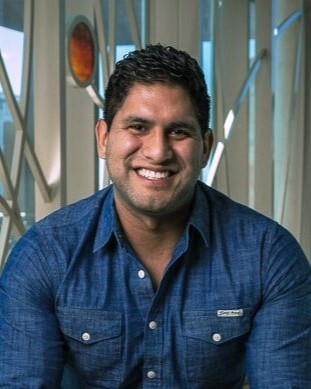
Albert Burgess-Hull, PhD
Head Data Scientist, SUDx/MATClinics
University of Maryland
Albert Burgess-Hull is a Data Scientist and Machine Learning Researcher at MATClinics, an outpatient addiction treatment center in Maryland that specializes in Opioid Addiction Treatment. He received his PhD from the University of Wisconsin - Madison and completed postdoctoral fellowship training at the National Institute on Drug Abuse’s Intramural Research Program. Albert’s research focuses on the development and validation of digital diagnostic and prognostic frameworks for the classification and prediction of treatment related outcomes in addiction medicine. He is also interested in how the use of advanced clustering/segmentation methodologies can be used for the development of precision medicine frameworks to deliver the optimal treatment to the right patient at the right time.
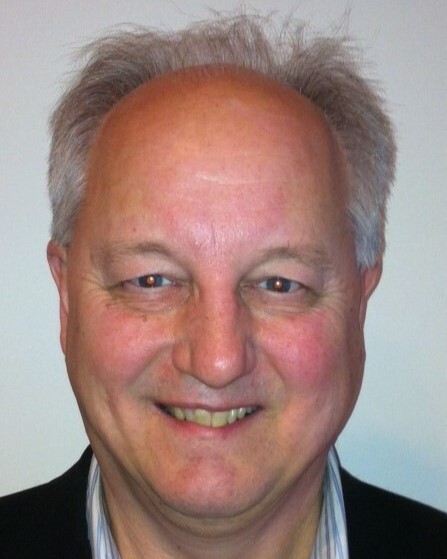
Keith Burkhart, MD
Senior Advisor for Medical Toxicology
US Department of Health and Human Services
Senior Advisor for Medical Toxicology in the Division of Applied Regulatory Science in the Office of Clinical Pharmacology in the Office of Translational Science in the Center for Drug Evaluation and Research at the Food and Drug Administration (FDA). He received his medical toxicology training at the Rocky Mountain Poison Center in Denver (1988-1990). Emergency Medicine training was at the University of Cincinnati (1982-1985, Chief Resident). His Medical Degree (1982) is from the Medical College of Pennsylvania, now Drexel University. His B.S. (1978) is from Ursinus College in Biology (valedictorian). He is a Past-President and Fellow of the American College of Medical Toxicology. He is a co-editor of Critical Care Toxicology. He is the former Medical Director of the Penn State Poison Center (1990-2002) associated with an inpatient toxicology admitting service. Research interests include antidotes and treatment of the poisoned patients. At the FDA he started a biological plausibility consult service that would analyze for potential mechanisms as supportive evidence for an emerging drug safety signal. Bioinformatic tools were evaluated and studied to support these analyses. Research has also been done to predict adverse events. He currently is the Medical Monitor for FDA sponsored clinical trials performed to inform regulatory decision making.
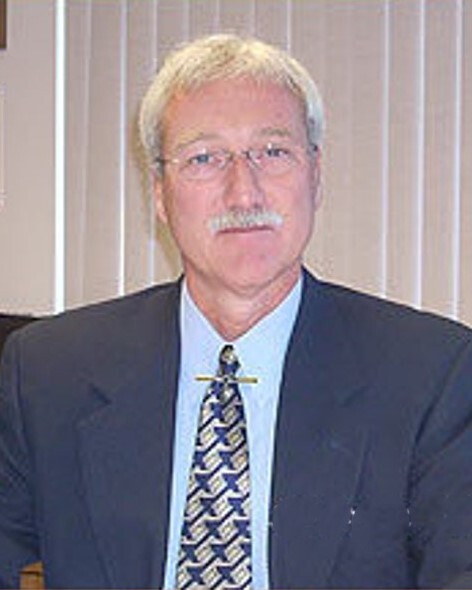
Joseph Cocciardi, PhD, MS, FAIHA, CIH, CSP, REHS/RS
Senior Health & Safety Professional
Cocciardi and Associates, Inc
Joseph A. Cocciardi, PhD, MS, CSP, CIH, REHS/RS, has practiced professionally and held academic and instructional positions for more than 35 years. Dr. Cocciardi's breadth of education, experience, and professional certifications have served the public, industrial and commercial sectors in the health, safety, emergency response and environmental protection disciplines.
This service has included the development, management and evaluation of public and occupational health/safety programs, including those with an environmental protection emphasis. Epidemiological study, research and investigation have been conducted over the 35-year period. He has been the Principal Investigator/Project Manager on key environmental protection programs dealing with highly hazardous chemicals and toxic materials and performed multiple hazard and risk assessments in this area. He has also evaluated current and proposed safety and environmental technologies and legislation.
He holds instructional licenses for work with specialized toxic materials (Asbestos Containing Materials; Lead) and was instrumental in the development of the first EPA licensed training site and public employee education center for the removal of Asbestos Containing Materials within the Commonwealth of Pennsylvania. He assisted with the establishment of a similar public lead poison prevention training center for the Pennsylvania Department of Health/US EPA. He has developed and taught safety and environmental protection programs and seminars at the collegiate level.
In addition to consulting activities, Dr. Cocciardi remains an employee of the U.S. Department of Health and Human Services (HHS), and is designated a TYPE 1 Safety Officer assigned to the HHS Incident Response Coordination Team (IRCT), with both response and planning responsibilities for large scale disaster events. He has deployed nationally and internationally as a member of the Type I HHS Incident Response Coordination Team (IRCT).
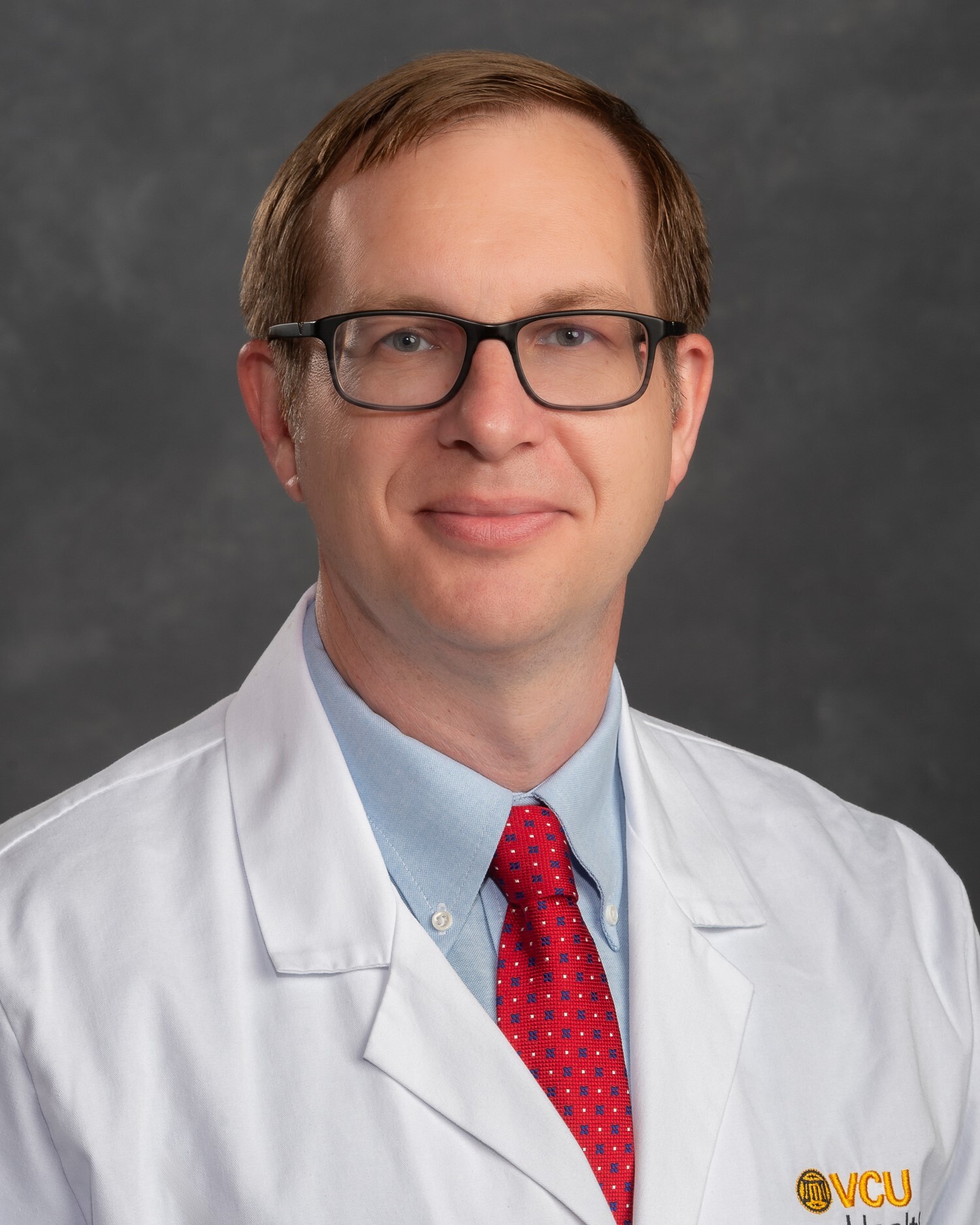
John Downs, MD, MPH
Associate Professor and Director, Virginia Poison Center
Virginia Commonwealth University Health System
Dr. John W. Downs, MD, MPH, is a medical toxicology faculty member at Virginia Commonwealth University (VCU) and a retired U.S. Army officer with over 20 years of distinguished service. A graduate of the Virginia Military Institute and the Uniformed Services University (USU), he completed residencies in internal medicine and occupational & environmental medicine, as well as a fellowship in medical toxicology at VCU. Dr. Downs has extensive military medical experience, including multiple deployments as a senior medical officer for special operations and infantry units in Iraq and Afghanistan, and leadership roles such as Chief of Preventive Medicine at Fort Campbell and Chief of Occupational & Environmental Medicine at Walter Reed during the COVID-19 pandemic. Board certified in internal medicine, occupational & environmental medicine, and medical toxicology, he also holds certifications as a Certified Public Health professional (CPH) and Diplomate of the American Board of Toxicology (DABT). A Fellow of the American College of Physicians and the American College of Occupational and Environmental Medicine, Dr. Downs has authored over 25 peer-reviewed publications and is a recipient of the Army Surgeon General’s 9A Proficiency Designation.
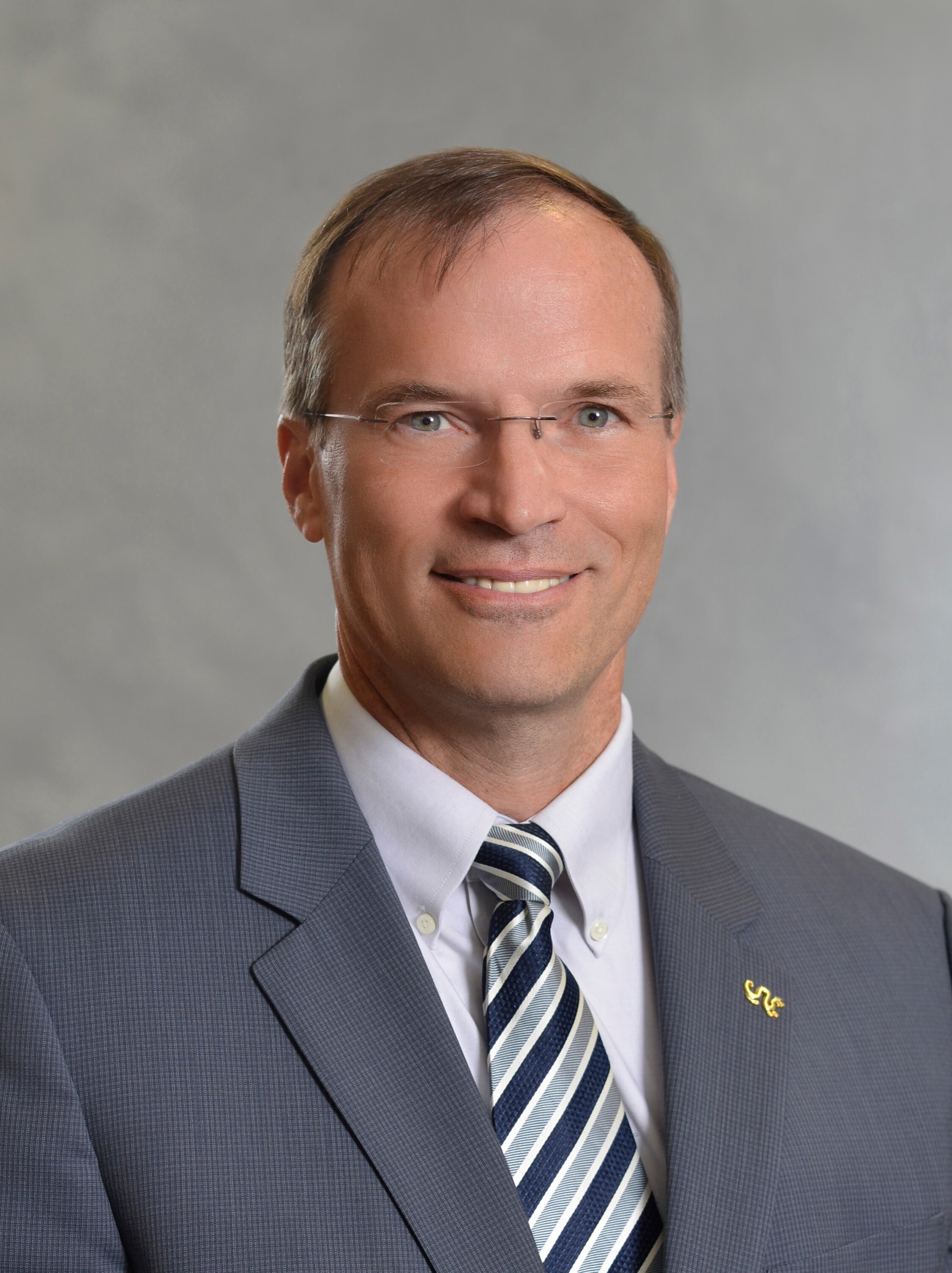
Richard Hamilton, MD, MBA, FACMT, FACEP, FAAEM
Professor and Chair of Emergency Medicine
Drexel University College of Medicine
Dr. Hamilton is Professor and Chair, Emergency Medicine, Drexel University College of Medicine. He is the Chief Academic Officer, DIO, and Regional Associate Dean for the Crozer Keystone Campus and EM System Chair of the Crozer Keystone Health System. Dr. Hamilton's research interests include PFAS and Manganese drinking water standards. He has received awards for his teaching and research and is a widely published author of manuscripts, textbooks, and book chapters, and patents.
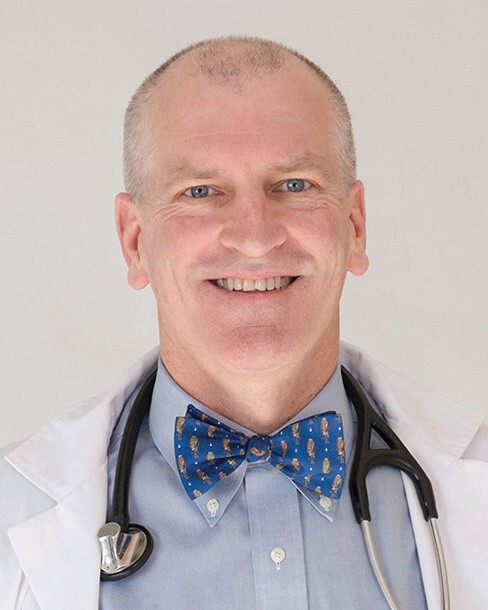
Michael G. Holland, MD, FEAPCCT, FAACT, FACOEM, FACMT, FACEP
Professor of Emergency Medicine
SUNY Upstate Medical University
Dr. Michael Holland is Clinical Professor of Emergency Medicine at SUNY Upstate Medical University in Syracuse, NY where he is on the faculty of the Medical Toxicology Fellowship Training Program and is a Consulting Medical Toxicologist at the Upstate New York Poison Center and the Onondaga County Medical Examiner’s Office-both in Syracuse, NY. Dr. Holland is also the Director of Occupational Medicine for the Saratoga Hospital Medical Group, and is the Saratoga Hospital Employee Health Medical Director, where he oversees the health and safety of over 3100 employees and staff. He also serves as Employee Health Medical Director at Glens Falls Hospital in Glens Falls, NY, covering 2500 employees. He is also Principal Medical Toxicologist at the Center for Toxicology and Environmental Health (CTEH) in Little Rock, AR.
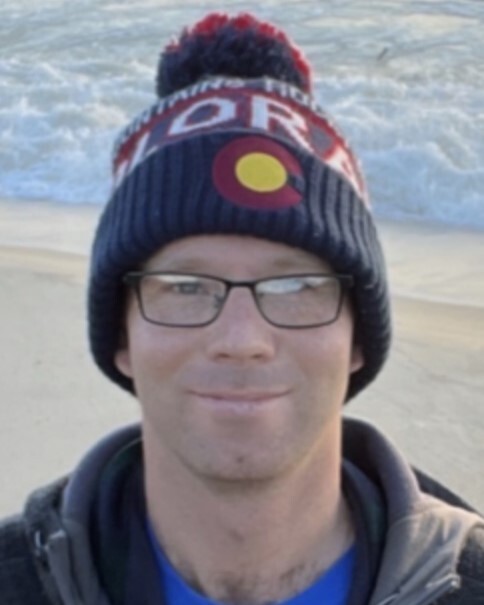
Brett E. Johnson, MD
Emergency Medicine Physician
UMass Memorial Medical Center
Dr. Johnson attended medical school at Loyola Stritch School of Medicine Chicago, and completed his Residency at UMASS Emergency Medicine. He is currently a senior fellow in Medical Toxicology. His major interests are interdisciplinary education, environmental toxicology/public health and intersection of climate science.
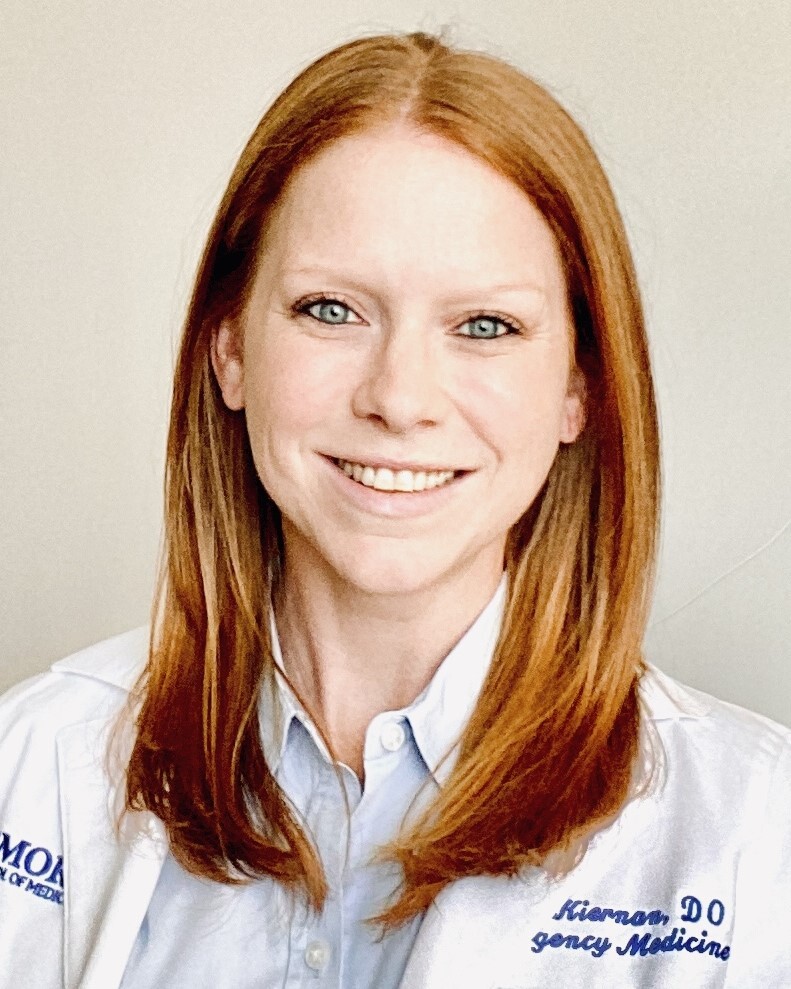
Emily Kiernan, DO, FAACT
Assistant Professor of Emergency Medicine and Medical Toxicology
Emory University School of Medicine
Dr. Emily Kiernan is an Assistant Professor at Emory University School of Medicine. She is a board-certified Emergency Medicine physician who recently completed a medical toxicology fellowship at Emory University/CDC. She has served as the fellow co-chair for the AACT Radiation Special Interest Section group as well as a chair in the ACMT Fellow-in-training association.
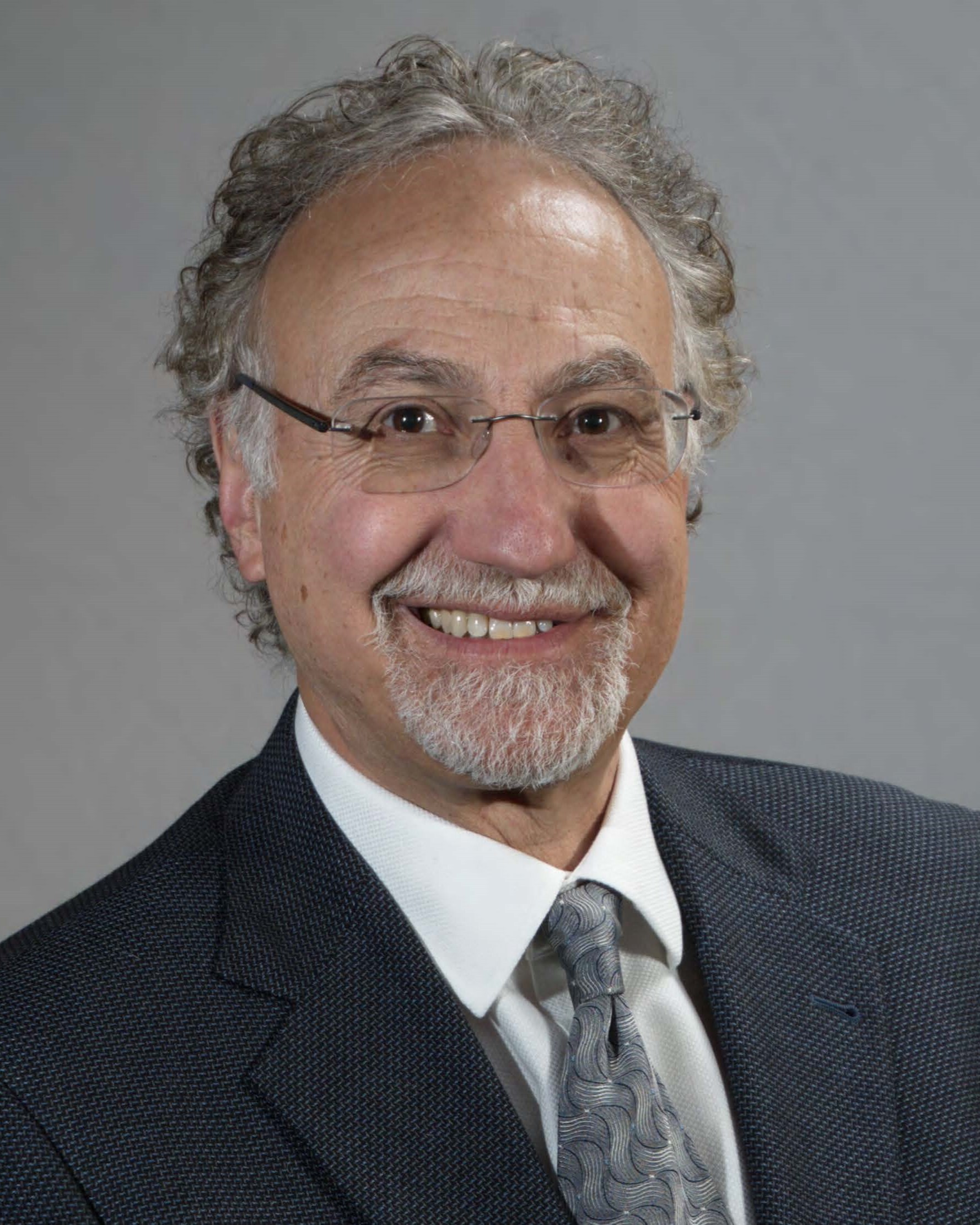
Michael J. Kosnett, MD, MPH, FACMT
Associate Clinical Professor, Department of Medicine
University of Colorado School of Medicine
Michael J. Kosnett, MD, MPH, FACMT has 34 years of experience as a physician specializing in medical toxicology and occupational and environmental health. He is board certified in internal medicine, medical toxicology, and preventive medicine (occupational medicine). He has served in a leadership and advisory capacity to multiple national and international medical and public health organizations. This includes service as past president of the American College of Medical Toxicology and a member of the Committee on Toxicology of the National Academies of Sciences, Engineering, and Medicine and the Board of Scientific Counselors of the National Institute for Occupational Safety and Health. In addition, Dr. Kosnett has served as a consultant and temporary advisor to the World Health Organization; EPA Science Advisory Board expert panels; and advisory committees of the CDC National Center for Environmental Health and ATSDR. He has also served as a medical toxicology consultant to the US Army Public Health Command, the US Air Force Science Advisory Board, and the US Navy Naval Air Systems Command. In 2016, the American College of Medical Toxicology awarded Dr. Kosnett the Matthew J. Ellenhorn Award, a career achievement award that recognizes “extraordinary contributions to the field of medical toxicology.”
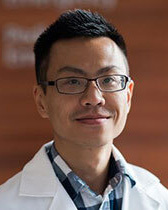
Jeffrey Lai, MD
Assistant Professor and Director, Medical Toxicology Fellowship
UMass Chan Medical School
Jeffrey Lai, MD, is an emergency physician and medical toxicologist. He completed his undergraduate studies at the University of California, Berkeley; medical school at the University of Pittsburgh; and emergency medicine residency and medical toxicology fellowship at the University of Massachusetts. He is the program director of the medical toxicology fellowship at UMass Chan Medical School, and his academic interests include medical education, the application of novel technologies to the treatment of substance use disorders, and the surveillance of impairing substances in patients with severe traumatic injurie
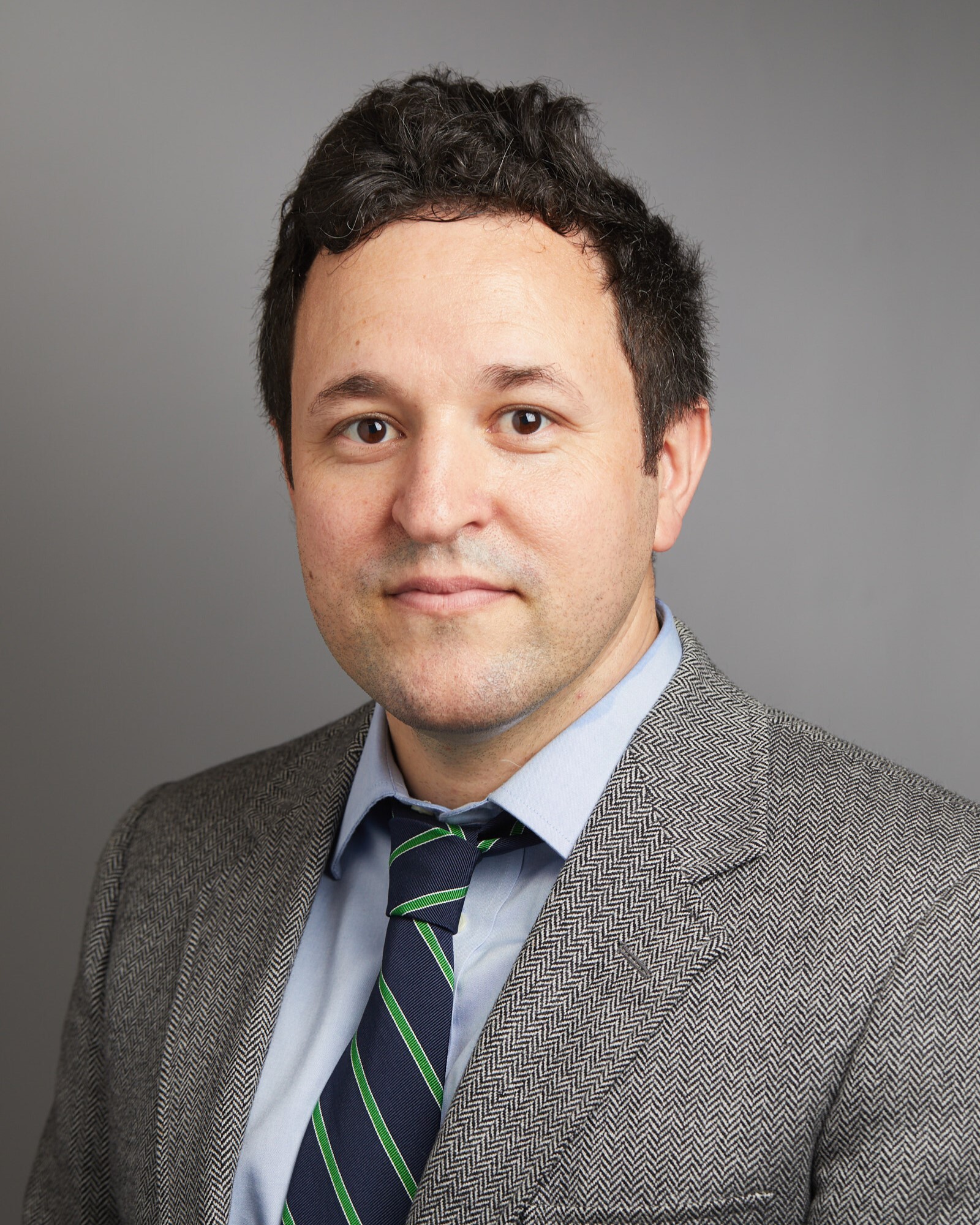
Brian Linde, MD, MPH
Associate Program Director, Chief of Occupational Health Services
Yale Occupational and Environmental Medicine Program (YOEMP) & VA Connecticut Healthcare System (VACHS)
Brian Linde is the Chief of Occupational Health Services at VA Palo Alto Healthcare System (VAPAHCS) and faculty physician at Stanford Workforce Health and Wellness. Prior to joining VAPAHCS and Stanford Health Care last year, Dr. Linde was Associate Program Director of the Yale Occupational and Environmental Medicine Program (YOEMP) and Chief of Occupational Health Services at the VA Connecticut Healthcare System (VACHS). As Associate Program Director of YOEMP, he oversaw the medical education and training for the physicians in training in Occupational and Environmental Medicine. He has also designed curricula to train Internal Medicine residents in core aspects of Occupational and Environmental Medicine. As Chief of Occupational Health Services at VAPAHCS, he oversees the Medical Center Occupational Health Services for over 5,000 employees in the VA Palo Alto Healthcare System. Services include medical surveillance, work injury evaluation and management, infection prevention, and employee health and well-being. As a Board Certified Occupational and Environmental physician, he also provides patient consultations to evaluate health effects of occupational and environmental exposures. Dr. Linde received his M.P.H. in Occupational and Environmental Medicine from Yale School of Public Health, and his M.D. from Albert Einstein College of Medicine, Yeshiva University.
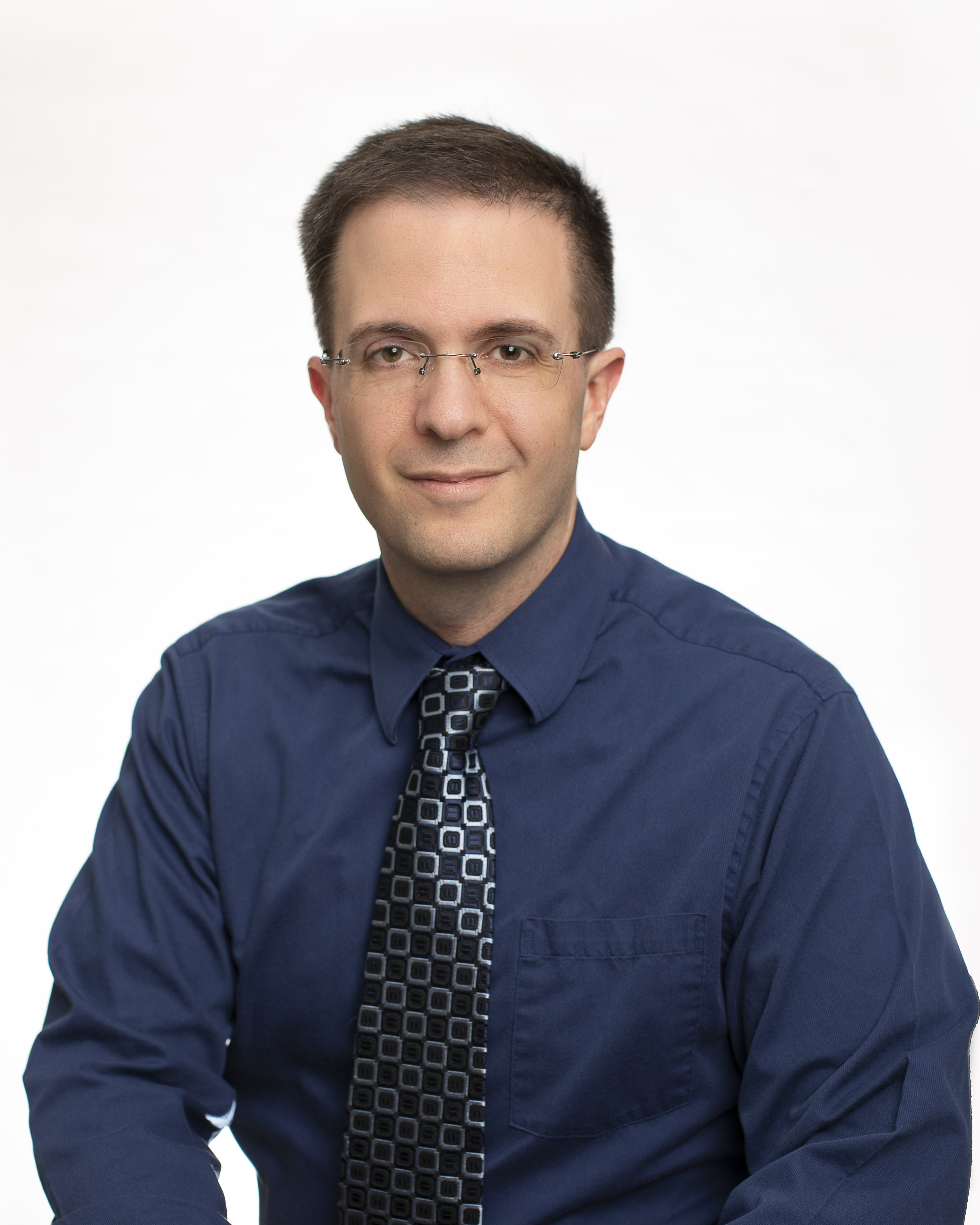
Kevin F. Maskell, Jr., MD
Assistant Professor of Military and Emergency Medicine
Brooke Army Medical Center
Dr. Maskell is board certified in emergency medicine, medical toxicology, and addiction medicine. He has an appointment as Assistant Professor of Military and Emergency Medicine at Uniformed Services University of Health Sciences and currently serves as the Medical Director of the Tactical Medicine Readiness Division at the US Army Medical Department Medical Center of Excellence, Ft. Sam Houston, Texas. He also serves as guest faculty at Brooke Army Medical Center and as a Consulting Toxicologist for the Washington Poison Center. He graduated from Chicago Medical School at Rosalind Franklin University of Medicine and Science, completed his Emergency Medicine residency at Madigan Army Medical Center in Tacoma, Washington, and his Medical Toxicology fellowship at Virginia Commonwealth University in Richmond, Virginia.
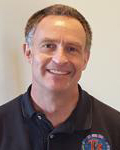
Charles McKay, MD, FACMT
Associate Medical Director
CT Poison Control Center, University of Connecticut School of Medicine
Dr. McKay was trained in Anatomic and Surgical Pathology, Internal Medicine, Emergency Medicine, Medical Toxicology and was a Medical Director of Occupational Health and Medical Review Officer for a hospital system during more than 30 years of clinical practice, during which he provided toxicology consultation at 3 hospitals, directed a medical toxicology fellowship training program, and provided medical oversight of a regional poison control center. He provides medical legal consultation across the country on toxicology-related issues, and has testified in nearly 100 cases, many related to questions of alcohol- and -drug-induced impairment.
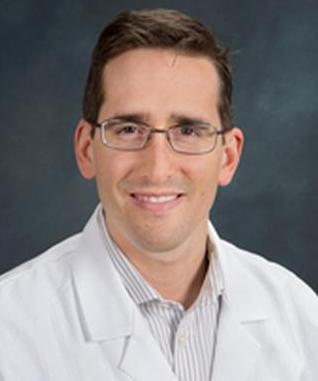
Nicholas E. Nacca, MD, FACMT
Assistant Professor of Emergency Medicine, Director of Medical Toxicology, Fellowship Director of Medical Toxicology Fellowship Program
University of Rochester Medical Center
Dr. Nicholas Nacca is the director of Medical Toxicology and Medical Toxicology Fellowship Director at the University of Rochester Medical Center. In addition to being faculty member in the Department of Emergency Medicine he holds a secondary appointment in the Department of Environmental Medicine. His primary role is staffing the educational and clinical medical toxicology consultation service, with educational responsibilities to medical toxicology fellows, multidisciplinary teams of medical residents, pharmacy residents and students, as well as medical students. He staffs and directs a referral based outpatient Medical Toxicology Clinic.
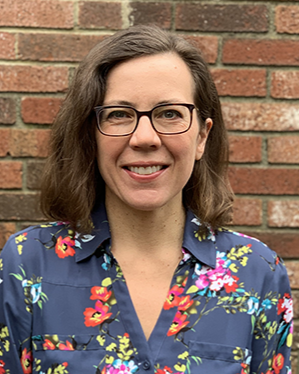
Mindy Richlen, PhD
Research Specialist, Biology
Woods Hole Oceanographic Institution
Dr. Mindy Richlen is a Senior Research Specialist at the Woods Hole Oceanographic Institution, specializing in harmful algal blooms (HABs) and Oceans and Human Health (OHH). Her expertise encompasses field and laboratory studies on the ecology, diversity, and molecular biology of HABs. As Project Lead for the Woods Hole Center for Oceans and Human Health (WHCOHH) Community Engagement Core (CEC), Dr. Richlen focuses on fostering collaboration with stakeholder and public health communities. She is also dedicated to community and classroom outreach, having developed K-12 activities based on WHCOHH research. In the national HAB community, Dr. Richlen serves as the Assistant Director of the U.S. National Office for Harmful Algal Blooms. This office, established by the National Oceanographic and Atmospheric Administration, aims to improve engagement and coordination within the HAB research and management community, industry, and the public. Dr. Richlen brings a wealth of experience and a versatile skill set to her work. She is well-versed in planning, executing, and publishing research on HABs, translating findings, and effectively engaging diverse audiences in OHH research.
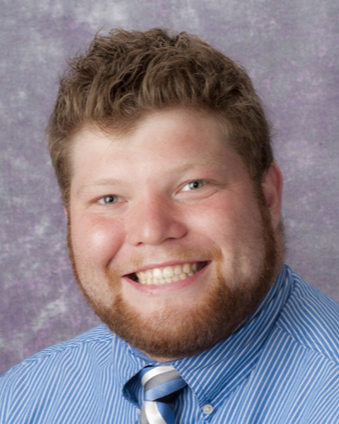
Joshua Shulman, MD
Medical Director
Pittsburgh Poison Center
Dr. Joshua Shulman is the Medical Director of the Pittsburgh Poison Center. He completed his undergraduate Summa Cum Laude at the University of Pittsburgh with a Bachelor of Arts and a Bachelor of Sciences (B.A./B.S.) in History and Neuroscience. He completed his Medical Doctorate (MD) degree at the University of Pittsburgh School of Medicine in 2012. He trained as a resident physician at UPMC Medical Education in Emergency Medicine from 2012 to 2015, and as a fellow in Medical Toxicology between 2015 and 2017. He was appointed a position of Assistant Professor of Emergency Medicine and Medical Toxicology at the University of Pittsburgh School of Medicine. He also holds an appointment as an Assistant Professor of Pharmacy and Therapeutics at the University of Pittsburgh School of Pharmacy. He is a diplomate of the American Board of Emergency Medicine, American Board of Medical Toxicology, and the American Board of Preventative Medicine in Addiction Medicine. He is currently practicing in UPMC Hospitals in the fields of Emergency Medicine, Medical Toxicology and Addiction Medicine.
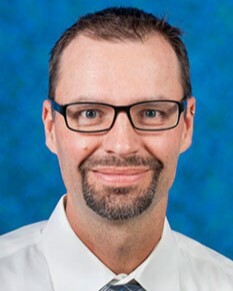
Michael J. Twiner, MD, PhD
Assistant Professor, Department of Emergency Medicine
Wayne State University
Dr. Twiner has studied environmental toxicology for over 20 years earning his PhD from Western University (Ontario, Canada). The main focus of his early research career involved identifying and characterizing the toxicological mechanisms of marine and freshwater algal toxins with applications towards the development of molecular and biochemical detection methods as well as assessing the health effects of these toxins on marine mammals and humans. He spent several years working at the National Oceanic and Atmospheric Administration’s Center for Coastal Environmental Health and Biomolecular Research in Charleston, SC before developing his own research laboratory at the University of Michigan. He continued to carry on his research program while completing his medical degree and then residency in Emergency Medicine at Detroit Receiving Hospital, Detroit, MI USA. He is now an attending physician at Detroit Medical Center, Detroit, Michigan. He holds an academic position with Wayne State University where he continues his algal toxin research but has also branched out to work on research projects involving hypertension and heart failure in the underserved communities within and around Detroit. To date, he has published over 40 research papers.
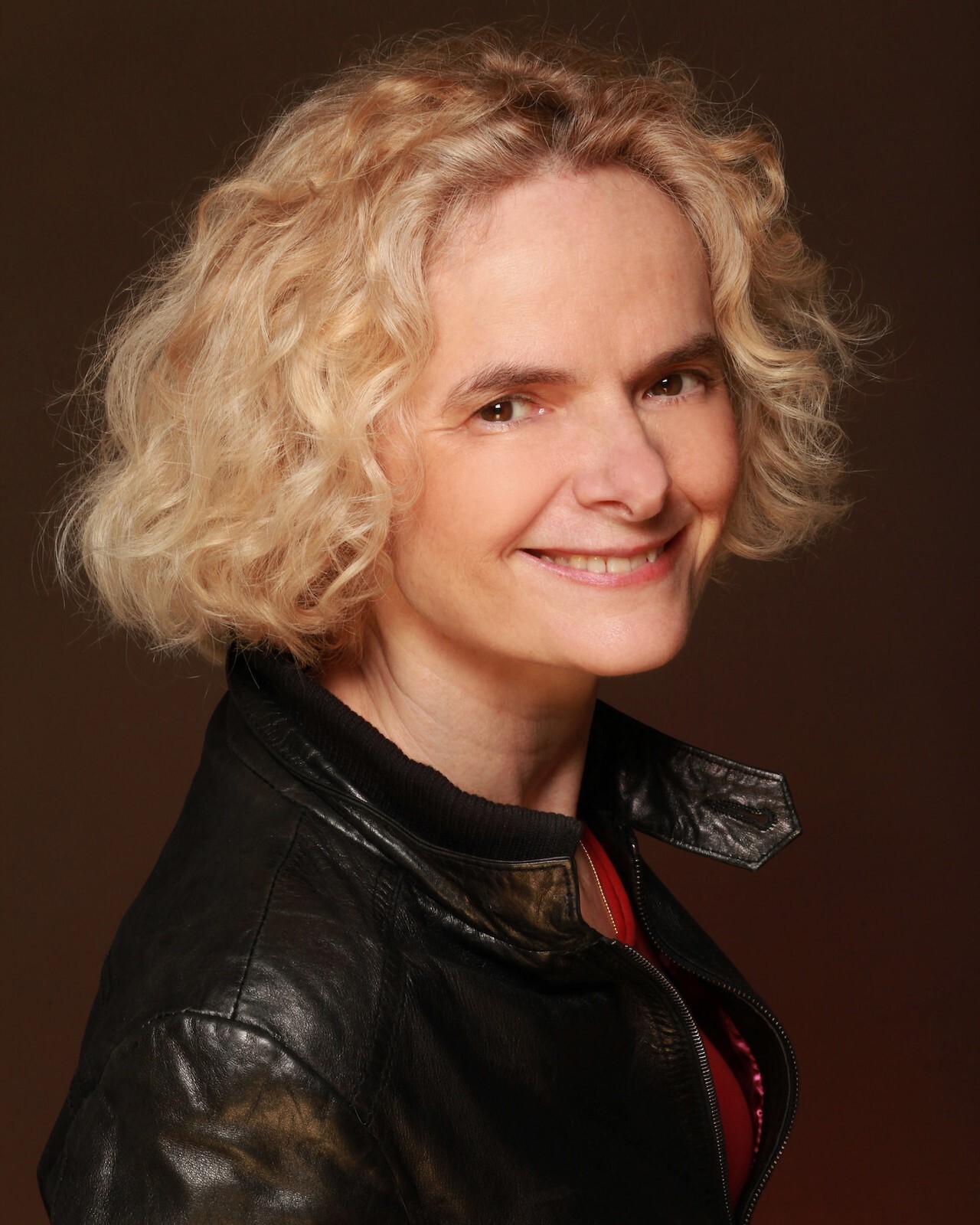
Nora D. Volkow, MD
Director, National Institute on Drug Abuse (NIDA)
National Institutes of Health (NIH)
Nora D. Volkow, M.D., is Director of the National Institute on Drug Abuse (NIDA) at the National Institutes of Health. NIDA is the world’s largest funder of scientific research on the health aspects of drug use and addiction.
Dr. Volkow's work has been instrumental in demonstrating that drug addiction is a brain disorder. As a research psychiatrist, Dr. Volkow pioneered the use of brain imaging to investigate how substance use affects brain functions. In particular, her studies have documented how changes in the dopamine system affect the functions of brain regions involved with reward and self-control in addiction. She has also made important contributions to the neurobiology of obesity, ADHD, and aging.
Dr. Volkow was born in Mexico and earned her medical degree from the National University of Mexico in Mexico City, where she received the Robins Award for best medical student of her generation. Her psychiatric residency was at New York University, where she earned a Laughlin Fellowship from The American College of Psychiatrists as one of 10 outstanding psychiatric residents in the United States.
Much of her professional career was spent at the Department of Energy’s Brookhaven National Laboratory in Upton, New York, where she held several leadership positions including Director of Nuclear Medicine, Chairman of the Medical Department, and Associate Laboratory Director for Life Sciences. Dr. Volkow was also a professor in the Department of Psychiatry and Associate Dean of the Medical School at The State University of New York at Stony Brook.
Dr. Volkow has published almost a thousand peer-reviewed articles, written 113 book chapters, manuscripts and articles, co-edited "Neuroscience in the 21st Century" and edited four books on neuroscience and brain imaging for mental and substance use disorders.
She received a Nathan Davis Award for Outstanding Government Service, was a Samuel J. Heyman Service to America Medal (Sammies) finalist and is a member of the National Academy of Sciences and the Association of American Physicians. Dr. Volkow received the International Prize from the French Institute of Health and Medical Research for her pioneering work in brain imaging and addiction science; was awarded the Carnegie Prize in Mind and Brain Sciences from Carnegie Mellon University; and was inducted into the Children and Adults with Attention-Deficit/Hyperactivity Disorder (CHADD) Hall of Fame. She was named one of Time magazine's "Top 100 People Who Shape Our World"; one of "20 People to Watch" by Newsweek magazine; Washingtonian magazine’s "100 Most Powerful Women"; "Innovator of the Year" by U.S. News & World Report; and one of "34 Leaders Who Are Changing Health Care" by Fortune magazine.
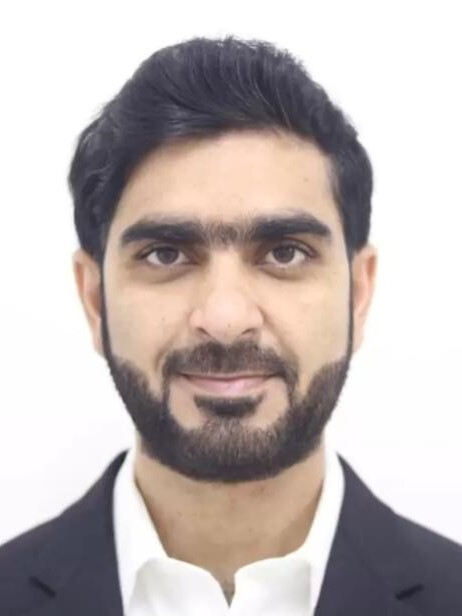
Hassan Al Balushi, MD, OMSB-EM
Emergency Medicine Consultant and Medical Toxicologist
Suhar Hospital, Minitry of Health
Dr. Hassan is an Emergency Medicne Consultant and Medical Toxicologist From Oman, Completed his Medical Degree at Sultan Qaboos University Medical School in Oman in 2013. Completed his Emergency Residency Program and Board at Oman Medical Specialty Board (OMSB), Oman. Completed a 2 year fellowship program in Medical Toxicology at Emory University, Georgea, USA. Dr. Al Balushi is an active member of Middle East and North Africa Medical Toxicology Association (MENATOX), as well as a board member and the secretary of Oman Society of Emergency Medicine (OSEM).
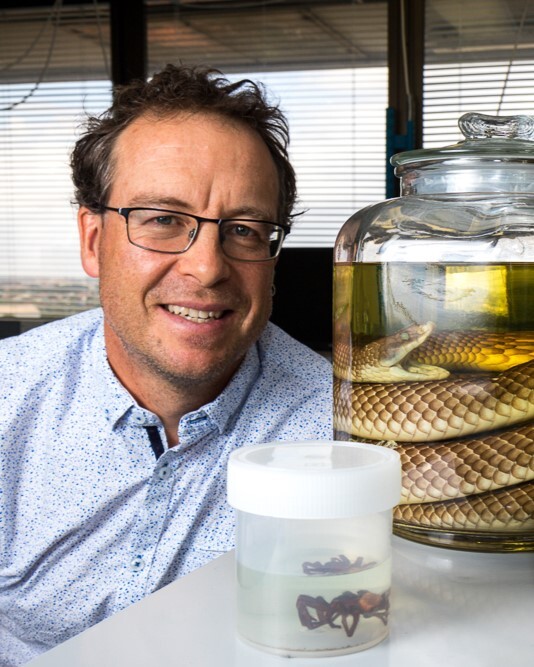
Geoffrey Isbister, MD
Professor, School of Medicine and Public Health
Department of Clinical Toxicology, Calvary Mater Newcastle
I am the Director of Clinical Toxicology at the Calvary Mater Newcastle, Professor at the University of Sydney and consultant toxicologist to the NSW Poisons Information Centre. I was made a Member of the Order of Australia in 2019 for my contribution to toxicology. I am President of the Asia Pacific Assocation of Medical Toxicologists, and a Board member of the EAPCCT. My major area of research is snake bite. I have published over 390 papers and received >$20 million in research funds. I have conducted 14 RCTs and coordinate or co-coordinate 5 large cohorts studies.
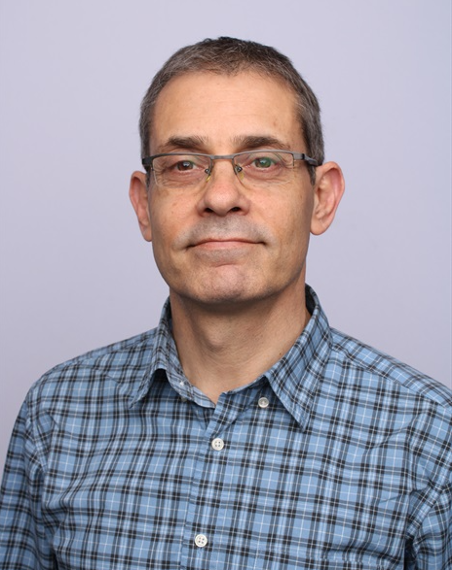
Ophir Lavon, MD, FEAPCCT
Medical Toxicologist, Clinical Pharmacologist, & Internal Medicine Specialist
Director of Clinical Pharmacology and Toxicology, Carmel Medical Center
Dr. Ophir Lavon is a board-certified medical toxicologist, clinical pharmacologist, and internal medicine specialist. He is the director of the Clinical Pharmacology and Toxicology Unit at Carmel Medical Center (Haifa, Israel), and leads its fellowship program. Dr. Lavon is the current chairperson of the Israel Society of Toxicology and a board member of the Israeli Society for Clinical Pharmacology (both affiliated with the Israel Medical Association). Dr. Lavon is a board member of the European Association of Poison Centres and Clinical Toxicologists (EAPCCT) and serves as the chairperson of its Communication Committee. He is an active member of ACMT and AACT. Dr. Lavon is a senior lecturer at the Rappaport Faculty of Medicine of the Technion – Israel Institution of Technology, Haifa, Israel. Dr. Lavon is the chair of several advisory committees for the Israel Ministry of Health, including the Advisory Committee for Preparedness and Response to Toxicological Mass Casualties Events and the National Committee for Antidotes. Dr. Lavon served for several years as a medical consultant at the Israel Poison Information Center, and he is the former director of the Patient Safety and Risk Management Unit at Carmel Medical Center.
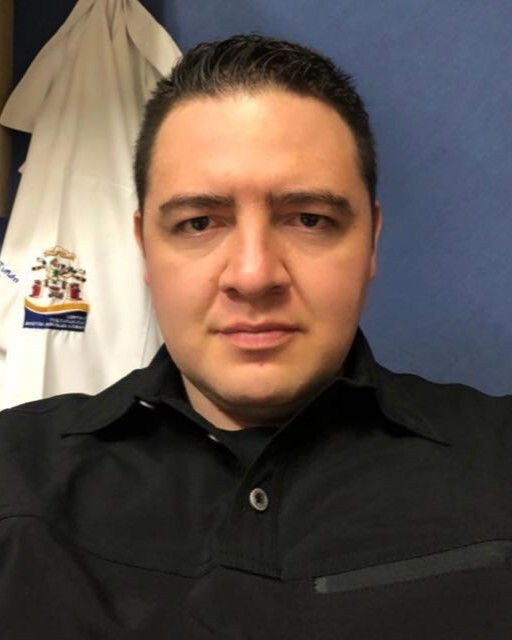
Jorge Guillermo Perez Tuñon, MD
Head of Clinical Toxicology Service & Certified Pediatrician
Angeles Lomas Hospital
Dr. Pérez Tuñón currently holds the position of Chief at the Centro Toxicológico del Hospital Angeles Lomas (Poison Control Center at Angeles Lomas Hospital) and serves as the Head Professor of Clinical Toxicology at the Universidad Nacional Autónoma de México (National Autonomous University of Mexico). He is a certified Pediatrician and holds a Master degree on Pharmacology. Dr. Pérez Tuñón has been professor for over 12 years and participated on more of 30 publications. Finally, he is blessed with a loving wife, Sandra, and three incredible children.
Registration Rates
Registration includes:
- 90-day access to all course content
- Access to the speaker slides & posters
- 16.00 Continuing Education Certificate. Available credits: Continuing Medical Education (CME), Continuing Nursing Education (CNE), and Continuing Pharmacy Education (CPE).
Member Rates
Member Tier I: Full, Affiliate, International, Emeritus |
$600 |
Member Tier II: Fellows |
$400 |
Member Tier III: Residents, International - Developing Country |
$300 |
Member IV: Medical Students |
$200 |
Non-Member Rates
Non-member Tier I: Physicians, Pharmacists, Lawyers, "Other" |
$900 |
Non-member Tier II: Fellows, SPIs, Nurses, etc. |
$600 |
Non-member Tier III: Educators & Emergency Responders |
$500 |
Non-member IV: Residents & Students |
$400 |
ACMT Membership
ACMT Members receive a discounted rate. Interested in becoming an ACMT Member? Contact our Membership Team at membership@acmt.net. Learn more at: www.acmt.net/membership
Refunds and Cancellations
For information on ACMT's Cancellation and refund policy, click here.
Questions?
For any questions, please email us at events@acmt.net.
Instructions
Once you have completed your registration:
- Click on the Contents tab. This is where you will be able to see all lectures and required content for this course.
- Watch all required lectures. Learners will be required to watch at least 3/4 of the video before it will be marked as complete.
- Complete the Post-Test. These questions are based on content from the lectures and require a 80% to pass.
- Complete the CE Survey. These questions are required to claim your CE certificate.
- Once you have completed all other components, you will be able to claim your CE certificate.
Hardware/Software Requirements
Computer or Other Internet-Enabled Device; Internet Connection; Browser.
Materials
None.
Prerequisites
None.
Format
This is a self-guided course with CME, CNE, and CPE.
Need Assistance or Have Questions?
For assistance logging in, accessing content, purchasing or completing Continuing Education credits, or for other questions, please contact us at events@acmt.net or visit our FAQ page.
If you are in need of accessible learning accommodations, please contact events@acmt.net for additional assistance.
Continuing Education

Continuing Education credit for this activity will be provided by AKH Inc., Advancing Knowledge in Healthcare.
Criteria for Success
Statements of credit will be awarded based on the participant's attendance. A statement of credit will be available upon completion of an online evaluation/claim credit form available at:
URL: https://education.acmt.net/p/ACMT2024OnDemand
If you have questions about this CE activity, please contact AKH Inc at JGoldman@akhcme.com.
Credit for this activity will expire on June 14, 2025. Please watch all videos and claim credit before this date.
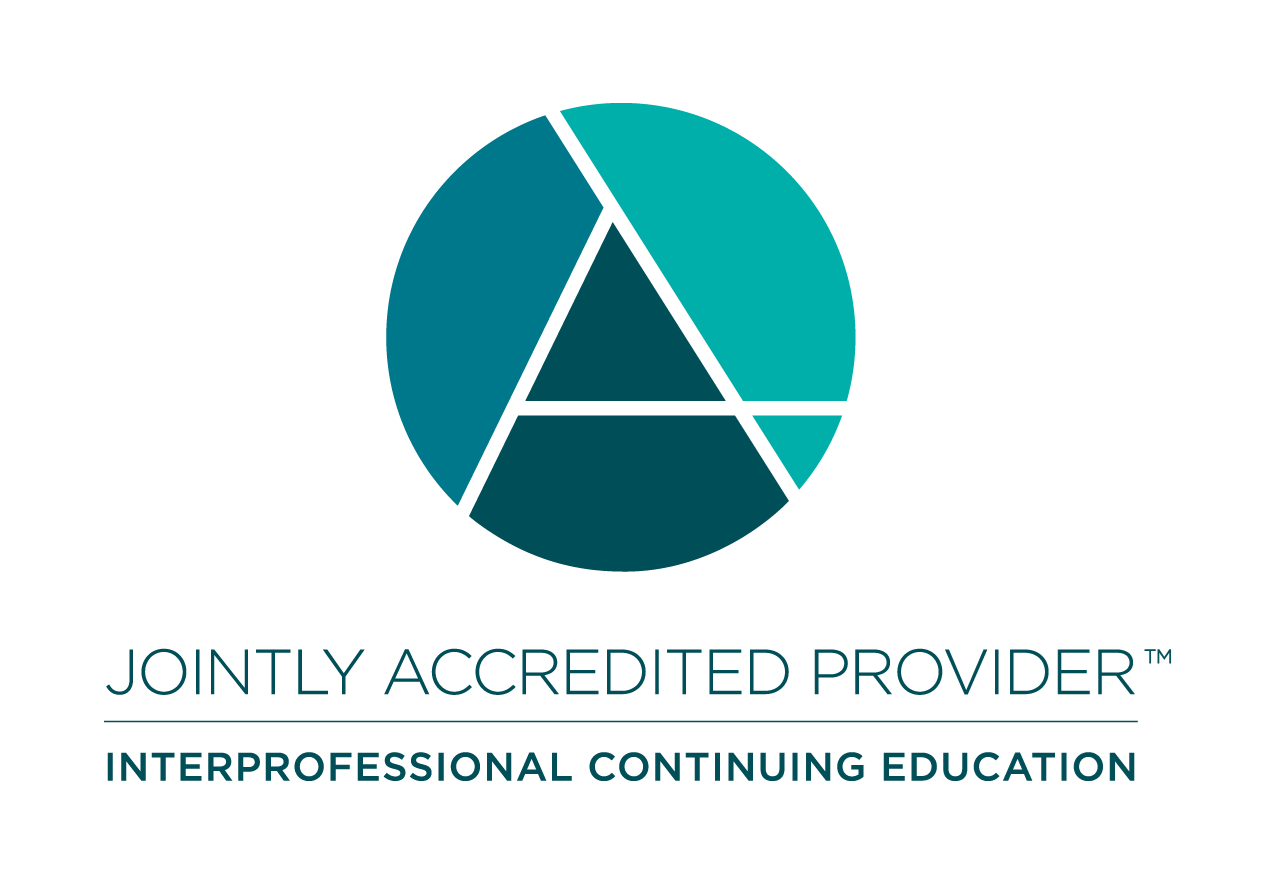
In support of improving patient care, this activity has been planned and implemented by AKH Inc., Advancing Knowledge in Healthcare and American College of Medical Toxicology (ACMT). AKH Inc., Advancing Knowledge in Healthcare is jointly accredited by the Accreditation Council for Continuing Medical Education (ACCME), the Accreditation Council for Pharmacy Education (ACPE), and the American Nurses Credentialing Center (ANCC), to provide continuing education for the healthcare team. If you are seeking continuing education credit for a specialty not listed above, it is your responsibility to contact your licensing/certification board to determine course eligibility for your licensing/certification requirement.
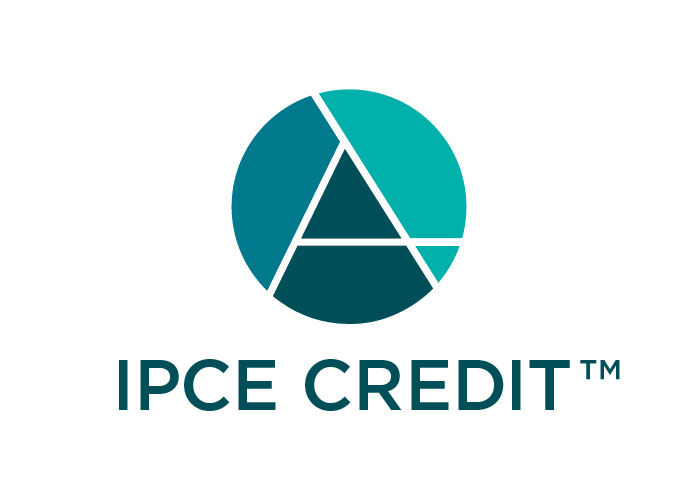
This activity was planned by and for the healthcare team, and learners will receive 16.00 Interprofessional Continuing Education (IPCE) credit for learning and change.
Physicians
AKH Inc., Advancing Knowledge in Healthcare designates this enduring material for a maximum of 16.00 AMA PRA Category 1 Credit(s)™. Physicians should claim only the credit commensurate with the extent of their participation in the activity.
Pharmacists
AKH Inc., Advancing Knowledge in Healthcare designates this continuing education activity for 16.00 contact hours.
Nurses
Credit being awarded: 16.00 ANCC contact hours
Commercial Support
There is no commercial support for this activity.
Disclosures
It is the policy of AKH Inc. to ensure independence, balance, objectivity, scientific rigor, and integrity in all of its continuing education activities. The author must disclose to the participants any significant relationships with ineligible companies whose products or devices may be mentioned in the activity or with the commercial supporter of this continuing education activity. Identified conflicts of interest are mitigated by AKH prior to accreditation of the activity. AKH planners and reviewers have no relevant financial relationships to disclose.
Disclosure of Unlabeled Use and Investigational Product
This educational activity may include discussion of uses of agents that are investigational and/or unapproved by the FDA. Please refer to the official prescribing information for each product for discussion of approved indications, contraindications, and warnings.
Disclaimer
This course is designed solely to provide the healthcare professional with information to assist in his/her practice and professional development and is not to be considered a diagnostic tool to replace professional advice or treatment. The course serves as a general guide to the healthcare professional, and therefore, cannot be considered as giving legal, nursing, medical, or other professional advice in specific cases. AKH Inc. specifically disclaim responsibility for any adverse consequences resulting directly or indirectly from information in the course, for undetected error, or through participants misunderstanding of the content. If you would like to opt out from future communications from AKH please send an email to optout@akhcme.com with your information with "Opt Out" in the subject line.



